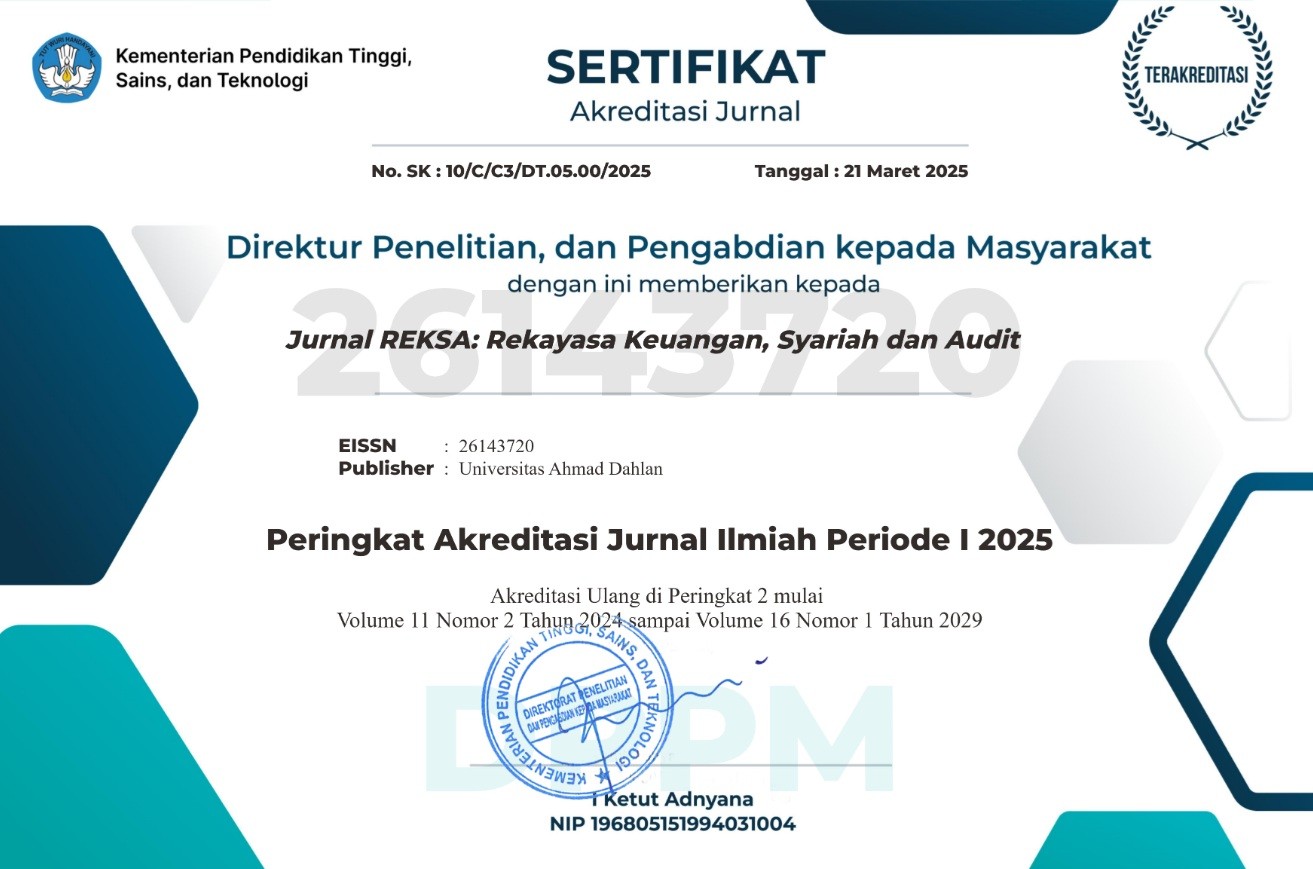FAKTOR-FAKTOR YANG BERPENGARUH TERHADAP AUDIT DELAY PADA PERUSAHAAN DAGANG DI BURSA EFEK INDONESIA
DOI:
https://doi.org/10.12928/j.reksa.v1i2.9Keywords:
Audit, delay, level of profitability, company size, and the size of the public accountant.Abstract
Time difference between financial statement and auditing opinion date indicates the amount of time needed in auditing settlement period. This condition can affect the punctuation of the information published and will inflence market reaction towards the lengthy information. It will also the level of uncertainly based on the published information in the auditor’s financial. Statement in which containing company’s profit information. This study aims to measure the factors which affect audit delay. They are profitability, company size, and the size of the public accountant. The population of the study is the trading companies registered in Indonesian Stock Exchange in the period 2006-2010. Sampling technique employed in this study is the purposive sampling with the total sample of 23 companies. The result of the study shows that the profitability, company size, and the size of the public accountant have significant influence towards audit delay.
Downloads
Published
How to Cite
Issue
Section
License
- Authors retain copyright and grant the JURNAL REKSA right of first publication with the work simultaneously licensed under a Creative Commons Attribution License (CC BY-SA 4.0) that allows others to share (copy and redistribute the material in any medium or format) and adapt (remix, transform, and build upon the material) the work for any purpose, even commercially with an acknowledgment of the work's authorship and initial publication in JURNAL REKSA.
- Authors are able to enter into separate, additional contractual arrangements for the non-exclusive distribution of the journal's published version of the work (e.g., post it to an institutional repository or publish it in a book), with an acknowledgment of its initial publication in JURNAL REKSA.
- Authors are permitted and encouraged to post their work online (e.g., in institutional repositories or on their website) prior to and during the submission process, as it can lead to productive exchanges, as well as earlier and greater citation of published work (See The Effect of Open Access).




